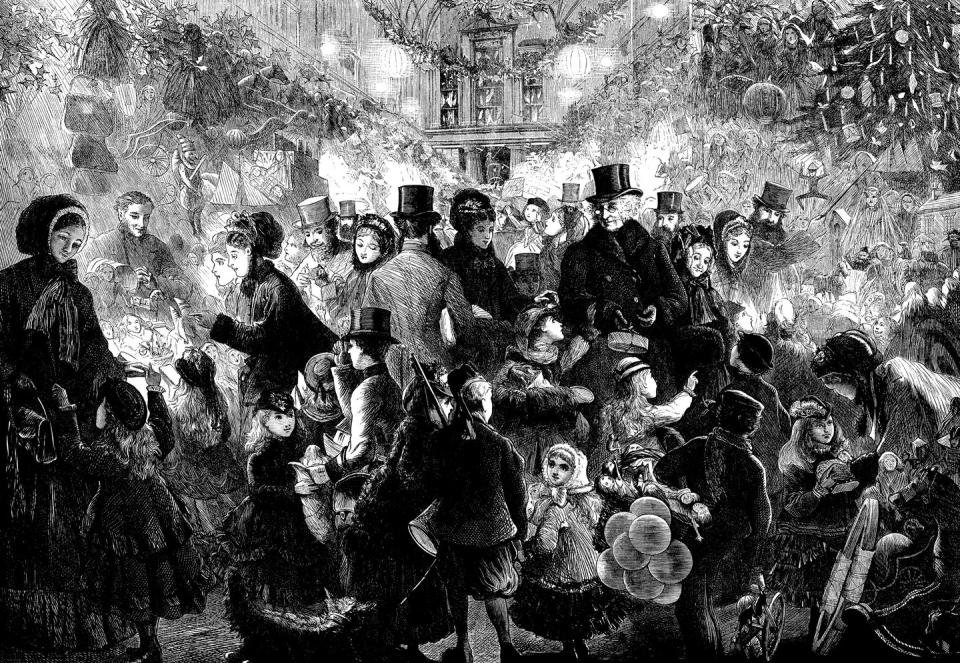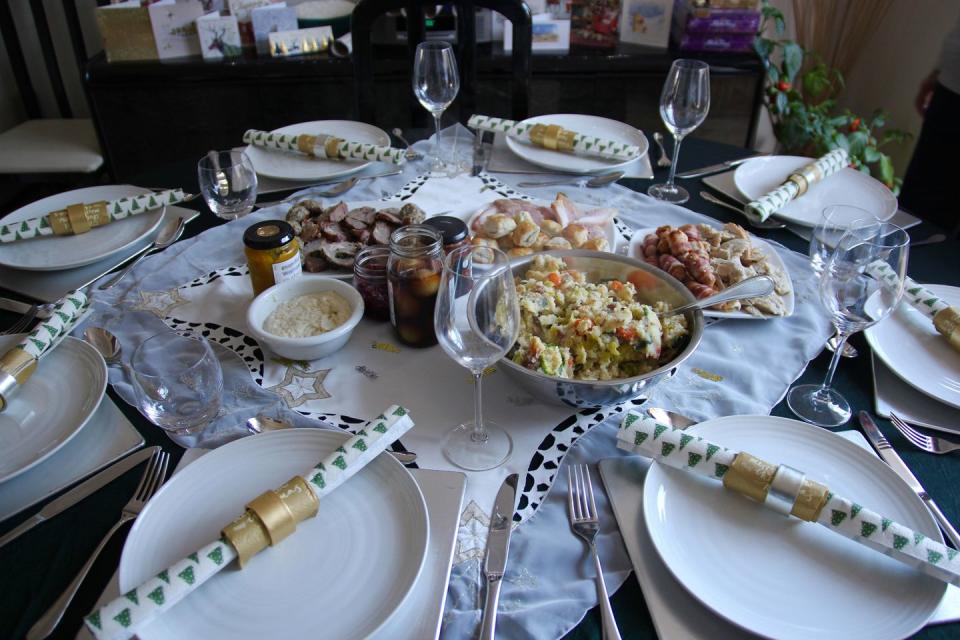The History of Boxing Day, Because Most People Don't Know What It Is

If you live in the United States, chances are you’ve heard of Boxing Day a time or two. But do you know the history of Boxing Day? If you don't, know that you're not alone: most Americans don’t celebrate the holiday. But people living in the United Kingdom, Canada, South Africa, Australia, and New Zealand do recognize the holiday, and as the world becomes increasingly smaller and more interconnected it behooves us all to learn about meaningful festivities celebrated around the globe.
Boxing Day takes place every year on December 26th, which is of course easy to remember since it always follows Christmas. According to Vox, whenever Boxing Day falls on a weekend, however, the holiday is observed on the following Monday. Boxing Day is most commonly associated with the United Kingdom, which is why countries that celebrate it are part of the Commonwealth of nations that were formerly British colonies. (For whatever reason, Americans have opted out of this tradition!) Though the exact beginnings of the holiday aren’t completely agreed upon, there are several origin stories that help explain its significance.
How Did Boxing Day Start?

The BBC explains that Boxing Day got its name when Queen Victoria held the throne in the 1800s, and is borne out of the tradition of wealthy families boxing up gifts to give to the poor. Since servants of aristocrats were required to work on Christmas, the following day became the time when their employers filled up boxes with gifts, money, and Christmas leftovers for them, much like a holiday bonus. Servants could then go home to share the gift boxes with their families.
Another theory, according to History.com, is that the name arose from alms boxes placed in churches for the collection of donations for those in need. On December 26th, clergy members would give these funds to the poor in honor of the feast of St. Stephen, a Christian martyr known for charitable acts. St. Stephen holds so much significance that in Ireland, Boxing Day is referred to as St. Stephen’s Day.
Yet another clue to the holiday’s moniker can be found in the song "Good King Wenceslas." TIME explains that this carol tells the tale of the Duke of Bohemia in the 10th century. On St. Stephen’s Day, he observed a poor man on his land, struggling to gather wood in the middle of a snowstorm. He was so moved by this sight that he gathered up food and wine and delivered it to his door, inspiring a tradition.
With so many competing narratives, it’s difficult to know exactly how Boxing Day began. It’s clear, however, that what they all have in common are themes of charity, gift-giving, and celebrations, which have lived on and is present in how this holiday is observed today.
How Is Boxing Day Celebrated Today?
These days, Boxing Day is regarded as a time to spend with family and friends, particularly those who you weren’t able to see on Christmas. This can include gathering for meals, drinking at pubs, or simply relaxing at home and enjoying the day off. In addition to the holiday’s emphasis on social connection, there are several other Boxing Day traditions that have evolved over the years.
While Boxing Day still has nothing to do with the sport of boxing, it has now come to be associated with watching football. The BBC notes that before the days of television, Christmas Day would feature a full schedule of football matches for fans to attend after they had eaten. During the 1950’s however, attitudes towards playing sports on Christmas changed, and the last football match to take place on Christmas occurred in 1957. Since then, Boxing Day has become the time for sports fans to get their fix.

Another facet of modern Boxing Day is shopping, since it’s now widely known as a day for massive sales. Similar to Black Friday in the US, plenty of shoppers will spend hours in line to snag some of the best discounts of the season, supplement the Christmas gifts they received, or possibly even return unwanted items. Since countries like the United Kingdom and Canada also celebrate Black Friday, Boxing Day shopping has become slightly less popular in recent years, but is still a main celebratory fixture.
Going back to its roots, charity continues to be an important aspect of Boxing Day celebrations. The Old Farmer’s Almanac explains that this includes everything from charity runs to the Boxing Day Dip, which is when adventurous participants dress in fancy clothes and take a dunk in the freezing cold sea.

Finally, Boxing Day is also recognized as a day to overindulge on Christmas leftovers. Families might invite guests over for a casual lunch featuring baked Ham, Christmas cake, turkey sandwiches, roasted vegetables and other festive foods enjoyed the day before. In that sense, you might have already been celebrating the spirit of Boxing Day for years, without even knowing it!
Want to make your holidays shine? You’re in luck! Subscribe to Woman's Day today and get 73% off your first 12 issues. And while you’re at it, sign up for our FREE newsletter for even more of the Woman's Day content you want.
You Might Also Like

